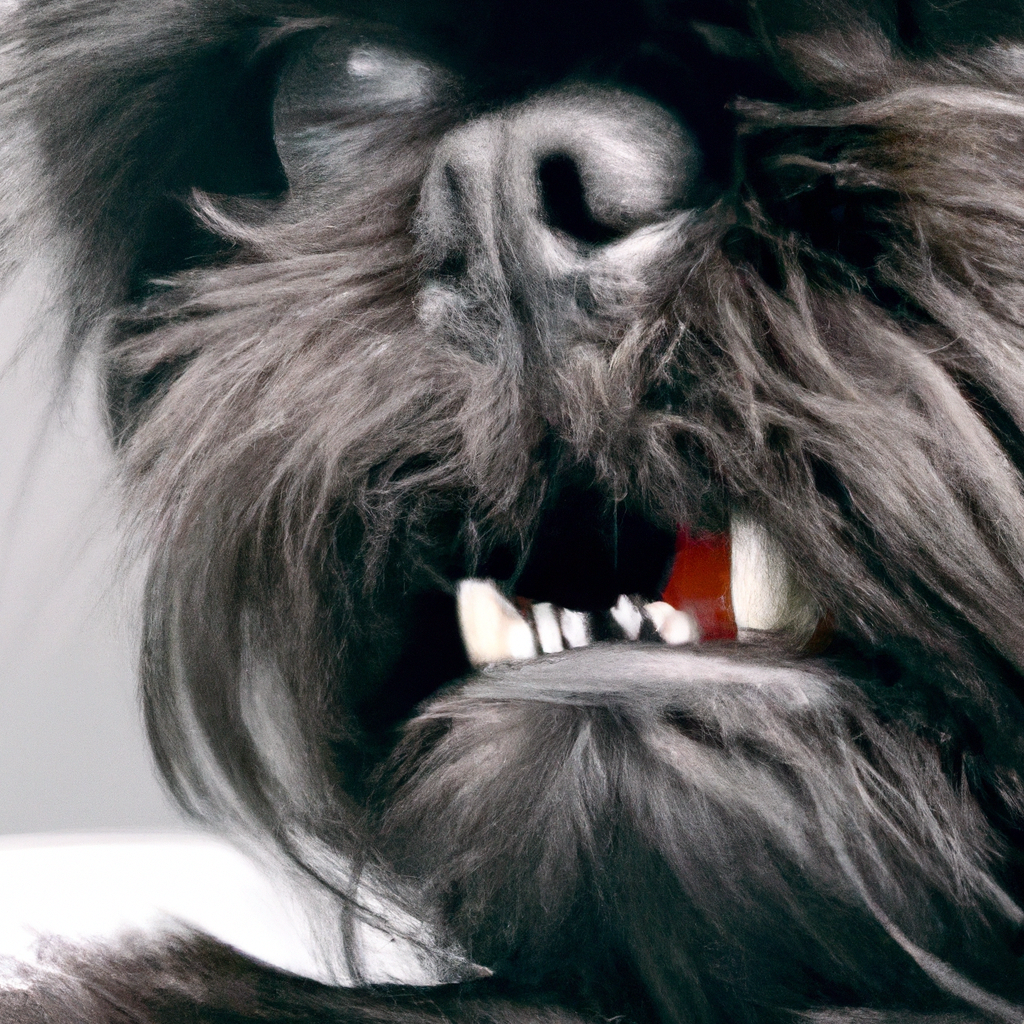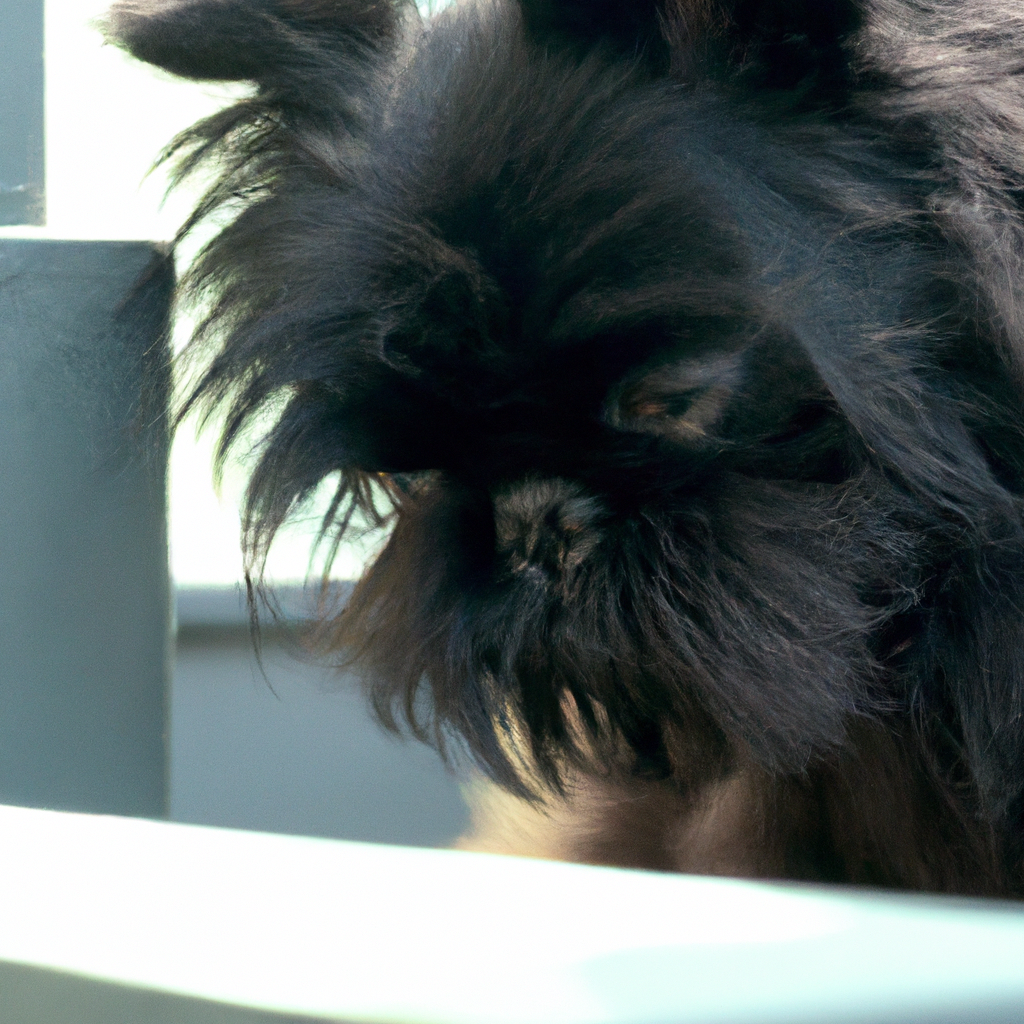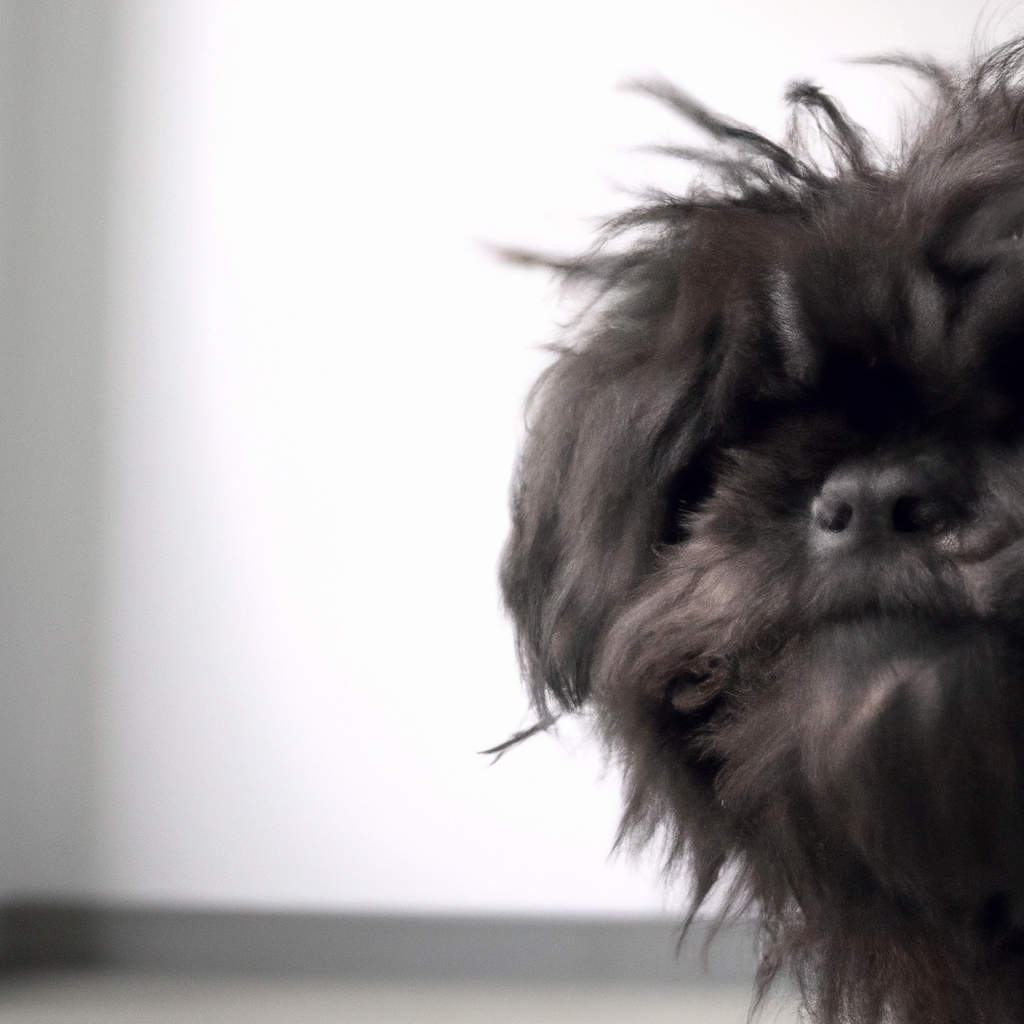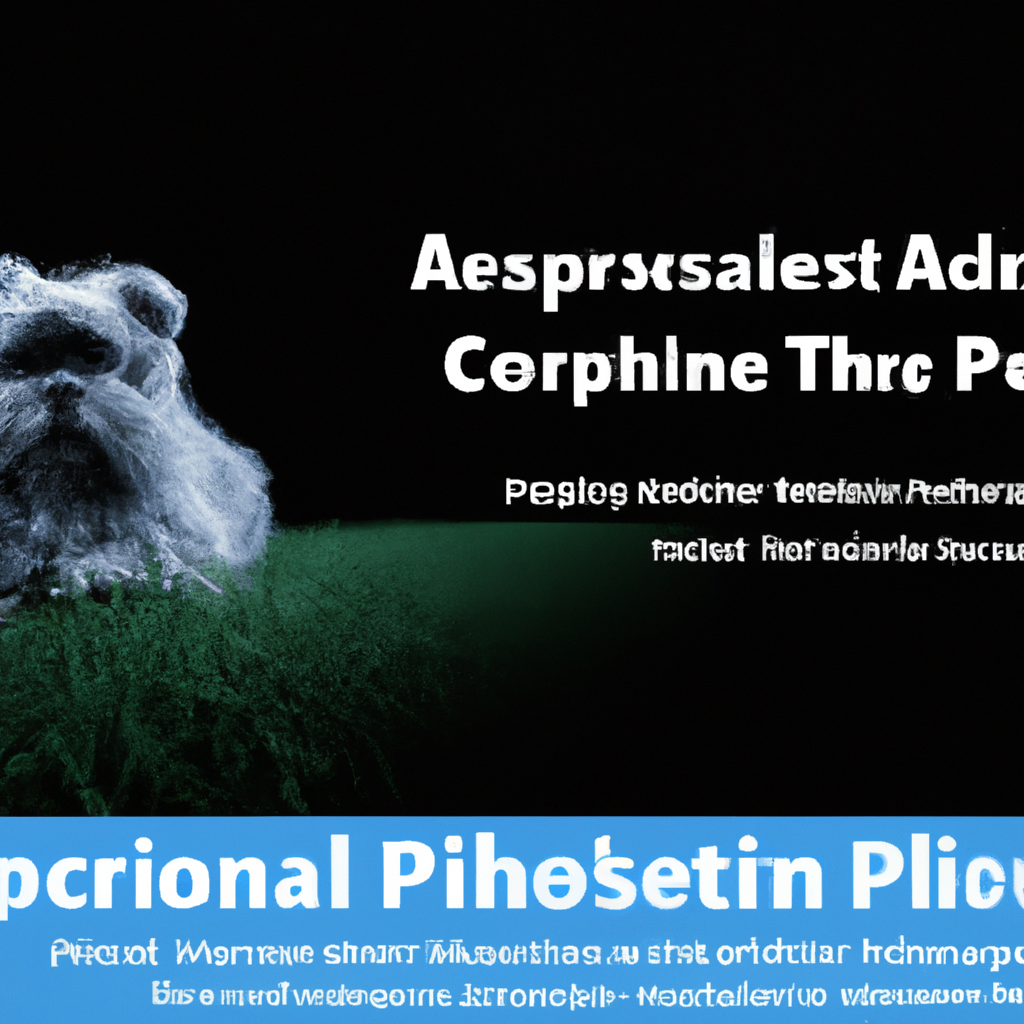Affenpinschers, a breed of small dogs known for their monkey-like appearance, are generally healthy but they are prone to certain medical issues. These include hip dysplasia, a common skeletal condition where the hip joint doesn’t fit properly, leading to discomfort, pain, and possibly lameness. They may also suffer from heart defects, respiratory problems, and eye conditions such as cataracts and glaucoma. Dental diseases are also common due to their small mouth size. Additionally, Affenpinschers are prone to certain skin conditions and allergies. Like many small breeds, they can also suffer from patellar luxation, a condition where the kneecap dislocates or moves out of its normal location.
Understanding the Heart Diseases Common in Affenpinschers
Affenpinschers, affectionately known as “Monkey Dogs,” are a small but sturdy breed known for their distinctive appearance and playful personalities. However, like all breeds, they are prone to certain health conditions. One of the top medical issues encountered by Affenpinschers is heart disease. Understanding these conditions can help owners provide the best possible care for their furry friends.
Heart disease in Affenpinschers can take several forms, but the most common is a condition known as Patent Ductus Arteriosus (PDA). This is a congenital heart defect that occurs when a blood vessel that is supposed to close shortly after birth remains open. This can lead to an overload of the heart and eventually heart failure if left untreated. Symptoms of PDA can include lethargy, difficulty breathing, and a decreased ability to exercise.
Another heart condition that can affect Affenpinschers is Mitral Valve Disease (MVD). This disease involves a degeneration of the mitral valve, one of the four valves in the heart, which can lead to congestive heart failure. MVD is often a progressive disease, meaning it worsens over time. Early signs of MVD can be subtle and may include coughing, fatigue after moderate exercise, and a decreased appetite.
Heart Murmurs are also common in Affenpinschers. These are abnormal sounds heard during a heartbeat cycle, usually caused by turbulent blood flow in the heart. While some heart murmurs are harmless, others can indicate underlying heart disease. Symptoms can vary widely, from no visible signs at all to severe heart failure.
While these conditions may sound daunting, it’s important to remember that with early detection and appropriate treatment, many Affenpinschers with heart disease can lead full and happy lives. Regular veterinary check-ups are crucial for early detection of heart disease. Your vet may use a variety of diagnostic tools, including listening to the heart with a stethoscope, blood tests, x-rays, and ultrasounds.
If your Affenpinscher is diagnosed with heart disease, treatment options will depend on the specific condition and its severity. For example, PDA is often treated with surgery, while MVD may be managed with medication. In some cases, dietary changes and exercise restrictions may also be recommended.
Prevention is also a key part of managing heart disease in Affenpinschers. While you can’t prevent congenital conditions like PDA, you can help reduce the risk of acquired heart diseases like MVD. Regular exercise, a balanced diet, and maintaining a healthy weight are all important for heart health.
In conclusion, while Affenpinschers are prone to certain heart conditions, these can often be managed effectively with early detection and appropriate treatment. Regular vet check-ups, a healthy lifestyle, and being aware of the signs of heart disease can all help keep your Affenpinscher’s heart healthy. Remember, your vet is your best resource for information about your pet’s health, so don’t hesitate to reach out if you have any concerns. After all, our furry friends rely on us to look after their health, just as much as they look after our happiness.
Hip Dysplasia in Affenpinschers: Causes and Treatments
Affenpinschers, also known as “Monkey Terriers,” are small, playful, and energetic dogs known for their distinctive, almost human-like facial expressions. While these dogs are generally healthy, they are prone to certain medical issues, one of the most common being hip dysplasia. This condition, which affects the hip joint, can significantly impact an Affenpinscher’s quality of life if not properly managed.
Hip dysplasia is a genetic disorder that occurs when the ball and socket of the hip joint do not fit together correctly. This misalignment can lead to painful arthritis and, in severe cases, lameness. Affenpinschers, like many small dog breeds, are particularly susceptible to this condition due to their compact size and the physical demands placed on their joints.
The first signs of hip dysplasia in Affenpinschers often appear when the dog is still a puppy. Symptoms may include a noticeable limp, difficulty standing up or climbing stairs, and a decreased interest in physical activity. As the condition progresses, the dog may also exhibit signs of pain or discomfort, particularly after periods of inactivity or following strenuous exercise.
If you suspect your Affenpinscher may be suffering from hip dysplasia, it’s crucial to seek veterinary attention as soon as possible. Your vet will likely perform a physical examination and may also recommend X-rays to confirm the diagnosis.
Once hip dysplasia has been diagnosed, there are several treatment options available. The most appropriate course of action will depend on the severity of the condition and the overall health of your dog.
In mild cases, lifestyle modifications and pain management strategies may be sufficient. This could involve changes to your dog’s diet and exercise routine, as well as the use of pain-relieving medications. For instance, maintaining a healthy weight can help to reduce the strain on your dog’s joints, while regular, low-impact exercise can help to keep the joints flexible and strong.
In more severe cases, surgical intervention may be necessary. There are several different types of surgery available, ranging from procedures that aim to correct the misalignment of the hip joint to total hip replacement. Your vet will be able to advise you on the most suitable option for your dog.
Regardless of the treatment approach, it’s important to remember that managing hip dysplasia is a long-term commitment. Regular check-ups with your vet will be necessary to monitor your dog’s progress and adjust the treatment plan as needed.
In addition to medical treatment, there are also several things you can do at home to help your Affenpinscher manage their condition. Providing a comfortable and supportive bed can help to alleviate joint pain, while using a harness instead of a collar can help to reduce strain on the hips during walks.
While hip dysplasia is a common issue in Affenpinschers, it’s important to remember that every dog is unique. Not all Affenpinschers will develop this condition, and those that do will experience it in different ways. With the right care and treatment, most dogs with hip dysplasia can lead happy, active lives.
In conclusion, while hip dysplasia is a significant health concern for Affenpinschers, it is a manageable condition. By being aware of the signs and symptoms, seeking prompt veterinary attention, and following an appropriate treatment plan, you can help your Affenpinscher live a comfortable and fulfilling life.
Patellar Luxation: A Common Affenpinscher Health Issue
Affenpinschers, affectionately known as “Monkey Dogs,” are small, charming, and energetic dogs that are loved by many for their unique appearance and playful nature. However, like all breeds, Affenpinschers are prone to certain health issues. One of the most common medical problems encountered by these adorable canines is Patellar Luxation.
Patellar Luxation, also known as “slipped stifles,” is a condition where the dog’s kneecap (patella) dislocates or moves out of its normal location. This condition is quite common in small dog breeds, including Affenpinschers. It’s a condition that can be present from birth or can develop later in life due to trauma or degenerative diseases.
When an Affenpinscher suffers from Patellar Luxation, it may exhibit signs such as limping, difficulty in walking, or an abnormal gait, often described as a skip or a hop. In severe cases, the dog may experience pain and discomfort, leading to decreased activity levels and a reduced quality of life.
The severity of Patellar Luxation varies from dog to dog. In mild cases, the kneecap may only dislocate occasionally and return to its normal position on its own. However, in more severe cases, the kneecap may remain out of place most of the time, causing the dog to walk with its leg held off the ground.
Diagnosing Patellar Luxation involves a thorough physical examination by a veterinarian. The vet may manipulate the dog’s knee to check if the kneecap is easily dislocated. In some cases, X-rays may be necessary to assess the severity of the condition and to rule out other potential causes of the dog’s symptoms.
Treatment for Patellar Luxation depends on the severity of the condition. For mild cases, non-surgical treatments such as physical therapy, weight management, and anti-inflammatory medications may be recommended. These treatments aim to reduce inflammation and pain, strengthen the muscles around the knee, and prevent further dislocation of the kneecap.
However, in moderate to severe cases, surgery may be necessary to correct the problem. The type of surgery performed depends on the specifics of the dog’s condition, but the goal is always to realign the kneecap and prevent it from dislocating in the future. Post-surgery, the dog will typically need to undergo a period of rest and rehabilitation to regain strength and mobility in the affected leg.
While Patellar Luxation is a common health issue in Affenpinschers, it’s important to remember that not all Affenpinschers will develop this condition. Regular check-ups with a vet can help detect any potential issues early, increasing the chances of successful treatment and a full recovery.
In conclusion, while Affenpinschers are a generally healthy breed, they are prone to certain health issues like Patellar Luxation. As a responsible pet owner, it’s crucial to be aware of these potential health problems and to seek veterinary care promptly if your dog shows any signs of discomfort or abnormal behavior. With proper care and attention, your Affenpinscher can lead a happy, healthy, and active life.
Affenpinscher and Eye Problems: A Comprehensive Guide

Affenpinschers, affectionately known as “Monkey Dogs,” are small, fearless, and energetic dogs that are loved for their unique appearance and playful nature. However, like any breed, they are prone to certain health issues, particularly eye problems. This article will provide a comprehensive guide to the top medical issues encountered by Affenpinschers, focusing on eye problems.
Affenpinschers are predisposed to several eye conditions, with the most common being cataracts. Cataracts are characterized by a cloudiness in the lens of the eye, which can lead to blurred vision or even blindness if left untreated. This condition is often genetic in Affenpinschers, but it can also be caused by aging, diabetes, or injury. Regular vet check-ups are crucial to detect cataracts early and prevent further damage.
Another common eye problem in Affenpinschers is Progressive Retinal Atrophy (PRA). This is a group of genetic diseases that cause the retina to deteriorate over time, leading to gradual vision loss and eventually blindness. Unfortunately, there is currently no cure for PRA, but early detection can help manage the condition and slow down its progression. DNA testing is available for certain types of PRA, which can be beneficial for breeders to prevent passing on the disease.
Corneal ulcers are also frequently seen in Affenpinschers. These are painful sores on the cornea, the clear outer layer of the eye. They can be caused by trauma, dry eye, or an eyelid abnormality. Symptoms include redness, squinting, and excessive tearing. If you notice these signs in your Affenpinscher, it’s important to seek veterinary care immediately as untreated corneal ulcers can lead to serious complications.
Dry eye, or Keratoconjunctivitis Sicca (KCS), is another condition that Affenpinschers are prone to. This occurs when the dog’s tear glands don’t produce enough tears to keep the eyes lubricated, leading to dryness, irritation, and potentially, corneal ulcers. Treatment typically involves eye drops or ointments to replace the missing tears and sometimes, surgery may be required.
Lastly, Affenpinschers can suffer from Distichiasis, a condition where an extra row of eyelashes grows on the inner edge of the eyelid, causing irritation to the eye. This can lead to corneal ulcers if left untreated. Treatment usually involves removing the extra eyelashes, often through electrolysis.
While these eye problems may sound daunting, it’s important to remember that not all Affenpinschers will experience these issues. Regular vet check-ups, a healthy diet, and good eye care can go a long way in preventing these conditions or at least managing them effectively if they do occur. If you’re considering adding an Affenpinscher to your family, it’s worth discussing these potential health issues with a reputable breeder or rescue organization. They can provide valuable insight into the breed’s health and help you make an informed decision.
In conclusion, while Affenpinschers are prone to certain eye problems, these conditions are manageable with early detection and proper care. As a responsible pet owner, staying informed about your Affenpinscher’s health and maintaining regular vet visits will ensure your furry friend leads a happy and healthy life.
Dental Diseases in Affenpinschers: Prevention and Care
Affenpinschers, affectionately known as “Monkey Dogs,” are small, sturdy dogs known for their distinctive, almost human-like facial expressions. While these dogs are generally healthy, they are prone to certain medical conditions, one of the most common being dental diseases. Understanding these issues, their prevention, and care can help Affenpinscher owners ensure their furry friends live a long, healthy life.
Dental diseases in Affenpinschers are often a result of their small size. Their compact jaws can lead to overcrowding of teeth, making them more susceptible to dental problems like periodontal disease. This condition is caused by the buildup of plaque and tartar on the teeth, which can lead to inflammation and infection of the gums and tooth loss if left untreated.
Preventing dental diseases in Affenpinschers begins with regular dental care. Brushing your dog’s teeth daily with a dog-specific toothpaste can help remove plaque before it hardens into tartar. It’s also important to provide your Affenpinscher with dental chews or toys designed to help clean their teeth. These can help scrape off plaque and stimulate saliva production, which can help wash away bacteria.
Regular veterinary check-ups are also crucial in preventing dental diseases. Your vet can perform a thorough dental examination and professional cleaning, removing any tartar buildup that you may have missed. They can also identify early signs of dental disease that may not be visible to the untrained eye, allowing for early intervention and treatment.
If your Affenpinscher is diagnosed with a dental disease, it’s important not to panic. Many dental diseases are treatable, especially if caught early. Treatment may involve professional cleaning, antibiotics to treat any infection, and in some cases, extraction of severely affected teeth. Your vet will guide you through the treatment process and provide advice on how to care for your dog’s teeth at home.
In addition to regular dental care and veterinary check-ups, diet can also play a role in preventing dental diseases. Feeding your Affenpinscher a balanced diet that includes crunchy kibble can help keep their teeth clean. Avoid feeding them too many soft or sticky treats, as these can stick to their teeth and contribute to plaque buildup.
While dental diseases are common in Affenpinschers, they are not inevitable. With regular care and attention to their dental health, you can help your Affenpinscher avoid these issues and enjoy a healthy, happy life. Remember, prevention is always better than cure. By taking steps to prevent dental diseases, you’re not just protecting your dog’s teeth, but also their overall health. After all, dental diseases can lead to other serious health problems if left untreated, including heart disease and kidney disease.
In conclusion, dental diseases are a top medical issue encountered by Affenpinschers, but with proper prevention and care, they can be managed effectively. Regular brushing, veterinary check-ups, a balanced diet, and early detection are key to keeping your Affenpinscher’s teeth healthy. So, don’t forget to pay attention to your dog’s dental health – it’s an important part of their overall well-being.
Legg-Calve-Perthes Disease in Affenpinschers: What You Need to Know
Affenpinschers, affectionately known as “Monkey Dogs,” are small, sturdy, and full of personality. These charming little dogs are known for their playful and adventurous spirit, but like all breeds, they are prone to certain health conditions. One of the top medical issues encountered by Affenpinschers is Legg-Calve-Perthes Disease. This condition primarily affects the hip joint and can lead to discomfort, pain, and mobility issues. As a responsible pet owner, it’s crucial to understand this disease, its symptoms, and the treatment options available.
Legg-Calve-Perthes Disease, also known as LCPD, is a degenerative condition that affects the femoral head, the ball part of the ball-and-socket joint that makes up the hip. In Affenpinschers with LCPD, the blood supply to the femoral head is disrupted, causing the bone to die and eventually collapse. This process leads to arthritis and inflammation in the joint, causing pain and limping in the affected dog.
The exact cause of LCPD is unknown, but it’s believed to be genetic, as it’s more common in certain breeds like Affenpinschers. It typically affects young dogs, usually between the ages of 5 to 8 months. However, it’s important to note that any Affenpinscher, regardless of age, can develop this condition.
The first sign of LCPD in Affenpinschers is usually a limp in one of the hind legs. The limp may come and go initially but will become more consistent as the disease progresses. Other symptoms include pain during movement, reluctance to play or exercise, and difficulty getting up from a lying or sitting position. As the disease progresses, the affected leg may appear thinner or weaker due to muscle atrophy.
If you notice any of these symptoms in your Affenpinscher, it’s essential to consult with a veterinarian as soon as possible. The vet will likely perform a physical examination and may recommend X-rays to confirm the diagnosis. Early detection is key in managing LCPD, as it can help prevent further damage to the joint and improve the prognosis.
Treatment for LCPD in Affenpinschers typically involves managing the symptoms and improving the dog’s quality of life. In mild cases, this may involve pain management using anti-inflammatory drugs and physical therapy to maintain muscle strength and joint mobility. A balanced diet and maintaining a healthy weight can also help reduce stress on the joint.
In more severe cases, surgery may be recommended. The most common surgical procedure for LCPD is femoral head ostectomy (FHO), where the damaged femoral head is removed to alleviate pain. After surgery, most dogs can return to a normal, pain-free life with proper care and rehabilitation.
In conclusion, while Legg-Calve-Perthes Disease is a serious condition that can affect Affenpinschers, it’s manageable with early detection and appropriate treatment. As a pet owner, being aware of this condition and its symptoms can help ensure your Affenpinscher gets the care they need to live a happy, healthy life. Remember, regular vet check-ups are crucial in catching any potential health issues early, including LCPD.
Skin Allergies in Affenpinschers: Symptoms and Solutions
Affenpinschers, affectionately known as “Monkey Dogs,” are small, charming, and energetic dogs that are loved by many for their unique appearance and playful nature. However, like any breed, they are prone to certain health issues. One of the top medical issues encountered by Affenpinschers is skin allergies. Understanding the symptoms and solutions for these allergies can help you ensure your furry friend stays healthy and happy.
Skin allergies in Affenpinschers can manifest in various ways. The most common symptoms include excessive scratching, biting, and licking, often leading to red, inflamed skin. You may also notice hair loss, hot spots, and changes in the skin’s color or texture. In severe cases, Affenpinschers may develop skin infections that result in a foul smell or discharge. It’s important to remember that these symptoms can be quite distressing for your pet, so it’s crucial to address them promptly.
The causes of skin allergies in Affenpinschers are diverse. They can be allergic to certain foods, environmental factors like pollen or dust mites, or even fleas. Flea allergy dermatitis, a reaction to flea saliva, is particularly common and can cause severe discomfort. Identifying the exact cause of your Affenpinscher’s skin allergy can be a bit of a detective game, but it’s a crucial step in finding the right solution.
If you suspect your Affenpinscher is suffering from a skin allergy, the first step is to consult with a veterinarian. They can perform tests to identify the allergen and rule out other potential causes of the symptoms. Once the allergen is identified, the vet can recommend a course of action. This might involve dietary changes, medication, or even allergy shots.
For food allergies, the solution often involves a process of elimination to identify the offending ingredient. Your vet may recommend a hypoallergenic diet, gradually reintroducing different foods to see which one triggers the allergic reaction. Environmental allergies can be trickier to manage, but regular cleaning, air purifiers, and limiting outdoor time during high pollen periods can help.
When it comes to flea allergies, prevention is the best cure. Regular use of flea prevention products can keep these pesky parasites at bay. If your Affenpinscher already has a flea infestation, your vet can recommend safe and effective treatments to eliminate them.
In addition to these specific solutions, there are general measures you can take to help your Affenpinscher’s skin stay healthy. Regular grooming can help remove allergens from the coat and skin. Using hypoallergenic shampoos and conditioners can also soothe irritated skin and reduce itching.
In conclusion, while skin allergies are a common issue for Affenpinschers, they are manageable with the right approach. By understanding the symptoms and potential causes, you can take proactive steps to help your pet. Remember, every Affenpinscher is unique, and what works for one may not work for another. Therefore, it’s essential to work closely with your vet to find the best solution for your furry friend. With patience and care, you can help your Affenpinscher live a comfortable, itch-free life.
Affenpinschers and Obesity: Risks and Management
Affenpinschers, affectionately known as “Monkey Dogs,” are small, playful, and energetic dogs that are loved by many for their unique appearance and lively personality. However, like any breed, Affenpinschers are prone to certain health issues, with obesity being one of the most common. Understanding the risks associated with obesity and how to manage it can help ensure your Affenpinscher lives a long, healthy, and happy life.
Obesity in Affenpinschers, as in other breeds, is often the result of overfeeding and lack of exercise. These small dogs have a hearty appetite and can easily gain weight if their diet and exercise aren’t carefully monitored. The risks associated with obesity in Affenpinschers are numerous and can significantly impact their quality of life.
One of the most immediate risks of obesity in Affenpinschers is joint problems. These small dogs have delicate skeletal structures, and carrying excess weight can put undue stress on their joints, leading to conditions like arthritis. This can cause pain and discomfort, and in severe cases, can limit their mobility.
Obesity can also increase the risk of heart disease in Affenpinschers. Excess weight puts additional strain on the heart, which can lead to a variety of cardiovascular problems. These can range from high blood pressure to congestive heart failure, both of which can significantly shorten an Affenpinscher’s lifespan.
Another serious risk associated with obesity in Affenpinschers is diabetes. Just like in humans, obesity can lead to insulin resistance in dogs, which can result in diabetes. This condition requires lifelong management and can lead to other health problems if not properly controlled.
Now that we’ve discussed the risks, let’s talk about how to manage and prevent obesity in Affenpinschers. The first step is to ensure your dog is getting a balanced diet. Affenpinschers need a diet that’s high in protein to support their energy levels, but it’s also important to monitor their calorie intake to prevent overfeeding.
Exercise is another crucial component of obesity management and prevention. Affenpinschers are energetic dogs that love to play, so make sure they’re getting plenty of physical activity each day. This can include walks, playtime in the yard, or even agility training.
Regular vet check-ups are also essential for monitoring your Affenpinscher’s weight and overall health. Your vet can provide personalized advice based on your dog’s age, weight, and health status, and can help you make any necessary adjustments to their diet or exercise routine.
Lastly, it’s important to remember that every Affenpinscher is unique. What works for one dog may not work for another, so it’s crucial to pay attention to your dog’s individual needs and adjust their care accordingly.
In conclusion, while obesity is a common issue among Affenpinschers, it’s also preventable and manageable. By understanding the risks and taking proactive steps to ensure your dog maintains a healthy weight, you can help your Affenpinscher live a long, healthy, and happy life.After extensive research, it’s concluded that Affenpinschers, like many small breed dogs, are prone to certain health conditions. These include hip dysplasia, heart problems, respiratory issues, and eye conditions such as cataracts and glaucoma. They may also suffer from dental problems due to the size and positioning of their teeth. Despite these potential health issues, with regular veterinary care and a healthy lifestyle, Affenpinschers can lead a long and healthy life.





